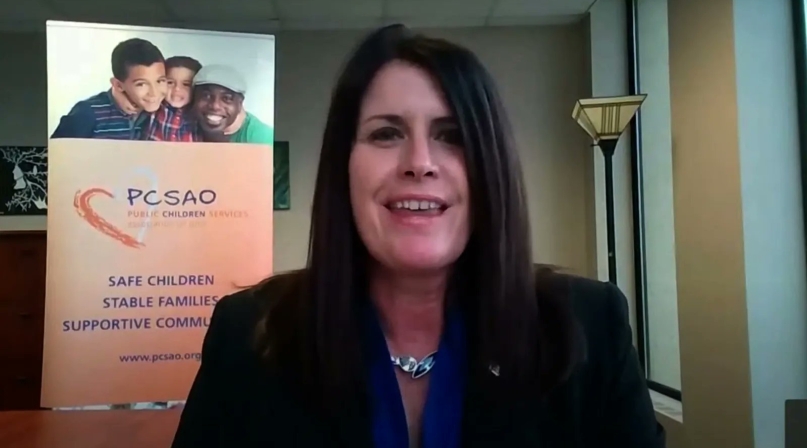NACo testifies in congressional hearing on mental health challenges facing county human services workforce
Author
Upcoming Events
Related News

Key Takeaways
On February 2, the U.S. House Committee on Ways and Means held the committee’s first hearing on mental health in more than a decade, focusing on America’s current mental health crisis. Testifying on behalf of NACo and the National Association of County Human Services Administrators (NACHSA), Executive Director of the Public Children Services Association of Ohio Angela Sausser discussed the mental health needs of county human services workers.
In her testimony, Director Sausser detailed how counties are working to implement solutions to support the mental health and well-being of the human services workforce and discussed key areas that can be strengthened through assistance from federal partners. Counties play a critical role in preventing and responding to child abuse and neglect concerns, and in 11 states child welfare jurisdiction falls solely or partially on counties. The number of children coming into care is increasing due in part to the opioid epidemic, which has resulted in an increase in caseloads at a time when caseworkers’ mental health challenges are further exacerbated by the Covid-19 pandemic.
Caseworkers within the county child services workforce serve as first responders, often work short-staffed with steadily increasing caseloads and receive low to average pay. Staff turnover, burnout and stress have led to mental health challenges and been a consistent concern for county child welfare agencies, with 53 percent of caseworkers reporting secondary trauma that meets the threshold of post-traumatic stress disorder (PTSD). Director Sausser highlighted several points for the committee’s consideration as they assess how to adequately address the well-being of this essential county workforce:
- While specific county responsibilities vary from state to state, we deliver essential human services and play a key role in preventing and responding to child abuse and neglect across the country
- The COVID-19 pandemic has exacerbated existing mental health challenges for this frontline workforce, leading to burnout and significant staff shortages
- County governments are working to implement solutions that support the well-being of our human services work
- The severity of the mental health crisis merits additional support from our federal partners in the form of increased resources and programmatic flexibilities
To read Director Sausser’s written testimony, click here. To watch a webcast of the hearing, click here.
Counties will continue to work with Congress and other federal agency partners to develop policies that strengthen efforts to support our human services workforce.
Featured Initiative
NACo Commission on Mental Health and Wellbeing
(2023-2024) Counties increasingly handle direct mental health service. NACo’s Commission on Mental Health and Wellbeing developed reports and united county leaders to address the mental health crisis through key policy priorities.

Related News

USDA and HHS release new dietary guidelines
On January 7, U.S. Department of Agriculture Secretary Brooke Rollins and U.S. Department of Health and Human Services Secretary Robert F. Kennedy, Jr. unveiled the new Dietary Guidelines for Americans, 2025–2030.

County Countdown – Dec. 15, 2025
Every other week, NACo's County Countdown reviews top federal policy advocacy items with an eye towards counties and the intergovernmental partnership.
